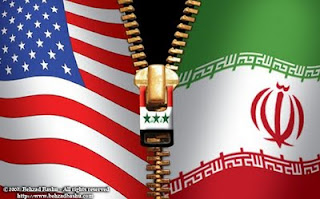Iran and West: waltz of wroth sides

While Iranian president Mahmoud Ahmadinejad states that "Iran is ready to govern the world", the White House warned that the possibility given to Tehran will soon expire.
The West accuses Iran of developing nuclear weapons, supporting terrorism and dictatorship, but Tehran believes the Western countries are trying to overthrow the country's government. All these testify the ambiguity of hopes to hold constructive talks between the two warring sides.
If Iran acquires nuclear weapons, it will be because of the fear from the West. Thus, it is unknown how Iran and the West will come to an agreement. At first glance, there is only one option to address this issue - Tehran's adoption of Additional Protocol.
According to the Additional Protocol approved by the IAEA in 1997, the Agency inspectors may conduct an investigation on the Iranian nuclear sites at any time convenient to them. However, this does not give any guarantees. First, Iran can build a secret nuclear facility if it wishes. Second, the IAEA representatives are confident that Iran's nuclear program is linked with the production of ballistic missiles. Naturally, Iran denies it and "fairly" impedes inspections at military sites in the country, arguing that each country's military activities are secret.
Iran is not going to turn off its nuclear program and imposing additional sanctions can not influence on Tehran.
On Nov. 29, Tehran announced that it is building five new plants to enrich uranium in the highlands and plans to build five more such facilities.
On Nov.27, the IAEA Board of Governors adopted a resolution condemning Iran's concealment of the construction of a plant for uranium enrichment.
In addition to Iran's problems with the West over the nuclear program, the country has still problems related to the IAEA requirements.
The West demands Iran to comply with all provisions of the NPT (Nuclear Non-Proliferation Treaty). According to the NPT's fourth paragraph, the IAEA is obliged to provide technical and scientific assistance related to the peaceful nuclear program to the participating countries. However, the UN Security Council's resolutions banned any kind of cooperation with Iran over the nuclear program. On the other hand, the NPT envisages not only the proliferation of nuclear weapons, but also the destruction of nuclear weapons. But countries that have nuclear weapons do not want to fulfill this requirement.
Iran joined the NPT in 1974.
West urges Iran to provide information on nuclear facilities. But Iran has a secret list of its nuclear facilities because of fear that they will be subjected to missile attack. Israel has repeatedly stated that it would keep a target on Iran's nuclear facilities.
Information about the construction of the Fordo plant was first unveiled during the 54th session of the UN General Assembly, and the Iranian Organization for Nuclear Energy confirmed it on Sept. 25. Despite the verification of the plant twice by the IAEA delegation led by former IAEA chief Mohammed ElBaradei, head of the IAEA accused Tehran of concealing documents related to "Fordo". Iran also stated that under paragraph 3.1 of the NPT the country intended to inform the IAEA about the plant six months before the activation of centrifuges "Fordo".
In any case, while the basic problems persist, it is absurd to expect that the issue of Iran's nuclear program will be resolved positively.

Comments
Post a Comment